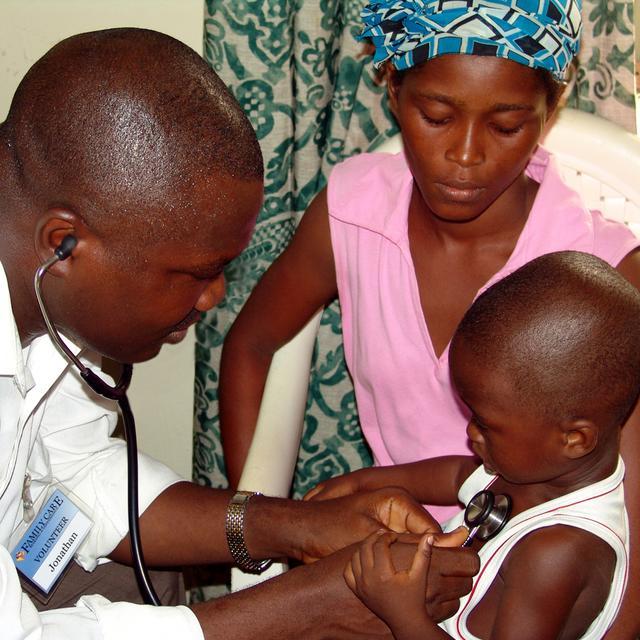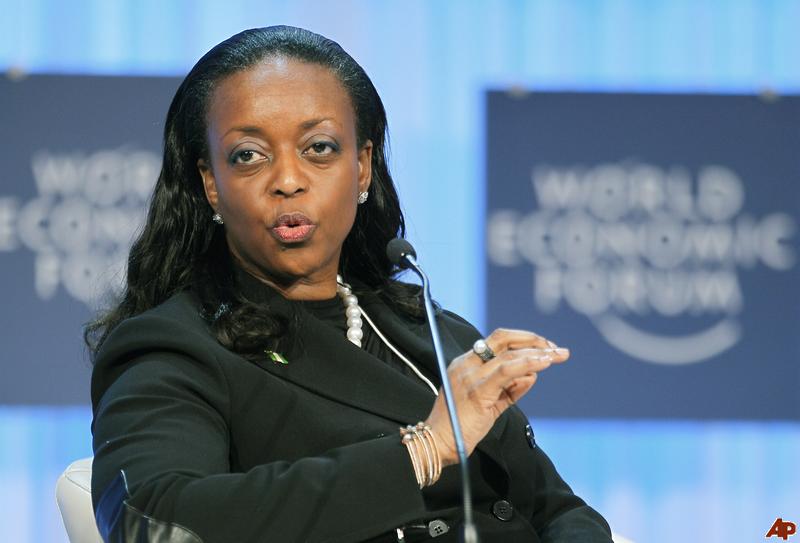 Frannie Léautier was born in the town of Moshi, at the base of Tanzania’s Mount Kilimanjaro. She was one of seven children – four boys and three girls – who formed a tight-knit family. When she was three years old, her family moved to the village of Lushoto, located along the Usambara Mountains. She and her siblings grew up in the quiet countryside, where goats were termed cash and cows capital. Her family owned one cow. Léautier believes it was this childhood setting, where she watched life grow and blossom before her very eyes, that later ignited her interest in finance and engineering. “My childhood was really an open learning environment,” she says, “mostly interacting with nature as we lived in a remote village.”
Frannie Léautier was born in the town of Moshi, at the base of Tanzania’s Mount Kilimanjaro. She was one of seven children – four boys and three girls – who formed a tight-knit family. When she was three years old, her family moved to the village of Lushoto, located along the Usambara Mountains. She and her siblings grew up in the quiet countryside, where goats were termed cash and cows capital. Her family owned one cow. Léautier believes it was this childhood setting, where she watched life grow and blossom before her very eyes, that later ignited her interest in finance and engineering. “My childhood was really an open learning environment,” she says, “mostly interacting with nature as we lived in a remote village.”
The Léautier family lived close to a national park, where elephants roamed freely. Léautier recalls her grandfather asking her to determine how heavy an elephant was simply by looking at its footprints in the soil. “From this childhood experience I learnt how to calculate or estimate the mass of a body by inspecting the footprint, understanding the impact that the body had on the surface,” she says. “My education in engineering was because of my grandfather. He taught me things I would later learn in physics but that he learnt from his life experience.”
At Dar es Salaam university, Léautier enrolled in the science and engineering programme, graduating in 1984 as a civil engineer. She went on to complete her master’s and doctoral studies in the United States, at MIT, before joining the World Bank. There, she worked on infrastructure across various departments and in various positions including Chief of Staff for the World Bank President, James Wolfhenson. She left the World Bank after 15 years of service, the last six of which she served as a Vice President overseeing the World Bank Institute (WBI). Léautier then took up a post as managing partner of the Fezembat Group, a company focused on risk management and leadership development, before moving to the African Capacity Building Foundation (ACBF). Léautier is also a distinguished Professor at Sciences Po (a public research and higher education institution based in Paris and which specialises in social sciences), where she has taught a course on leadership in the globalised world since 2007.
Léautier’s work with a recent project in Ghana earned her the nickname “Nkosuohemaa”, which means “queen of development” in the Ahanta language. The Agona people of central Ghana gave her this name during an Enstoolment ceremony, in recognition of her contribution to the development of Africa and her vision for the future of the girl child. The project centred around a group of 10 girls who were having difficulty getting into secondary school. The goal of the project was to remove the obstacles and barriers to entry preventing these young women from receiving the good education they deserved. Some of the barriers Léautier highlights include the need for young girls to handle demanding daily household chores, take care of younger siblings, a lack of basic infrastructure and electricity, and the need to walk long distances to school.
Léautier felt a connection with the project and its participants because of her own experiences and educational journey. “Someone removed barriers for me to attend MIT in the USA, which is a very good university but too expensive,” she says. It was only through another’s generosity that Léautier received a complimentary ticked from Swiss Air, which allowed her to make the trip. “I got jobs to pay my rent and then a scholarship to do my research primarily because someone removed the barriers for me,” she says.
Workplace attitudes still bear negatively on the role of women in society and Léautier believes that because of this, few people naturally turn to women as leaders. But, she says, many companies have made great strides in this regard, removing barriers to entry. Léautier cites the World Bank as one such example, saying that the organisation’s generous maternity leave policy allowed her the space and time she needed and helped her to make it back to work when she was ready.
Just as company policies and attitudes are changing, so are women’s viewpoints, Léautier says. Nowadays, many women are balancing life with the help of both traditional and modern systems. “A child belongs to the whole village, we say in Africa, and the village takes care of its own,” she says. “At the ACBF we are conscious of the traditional family systems that need to be compensated in urban settings.” This, she says, can be achieved through available life insurance schemes and support to working women through adequate childcare facilities, so that they might work without needing to worry about who is minding their children.
“Because I am a woman and have been through these challenges, and was fortunate to have people remove many obstacles for me, I have tried to do the same in the various positions I have held over the years”, she quips.
Léautier is excited about Africa’s place in the world. The continent is continually unearthing new natural resources and she believes that within a few years, Africa will surpass all other continents. It will become the world’s most populous continent – as well as the continent with the youngest population – making it the prime destination for companies seeking talent.
But, she says, while there has been great progress so far, Africa has not managed to stand on its own two feet just yet. “When countries make progress on implementation they slide back on policy or dynamic capacity,” she says. “We need to get to a point where we make progress on multiple fronts.” To do this, she says, we first need to tackle issues of infrastructure, electricity, water and transportation.
Secondly, we need to make our economies more diverse and not solely dependent on resources. If Africa can securitize the commodities from our resource wealth and raise resources domestically, she says, we can pay for our own development.
Then, we must bridge the generations with better healthcare to handle increased birth rates and increase longevity, and must unlock the potential and talents of our people. Africa has too many experts trapped within country borders and Léautier believes that regional integration can unlocked their potential. Africans are survivors, she says. “Tanzania is known as Bongo [Brain] land because it is an incredibly hard country to survive,” she says. “Yet people do and they thrive.” While she is under no illusion as to the enormity of the task at hand and acknowledges that there is much work still to be done, Léautier firmly believes the continent and its people are moving in the right direction.


